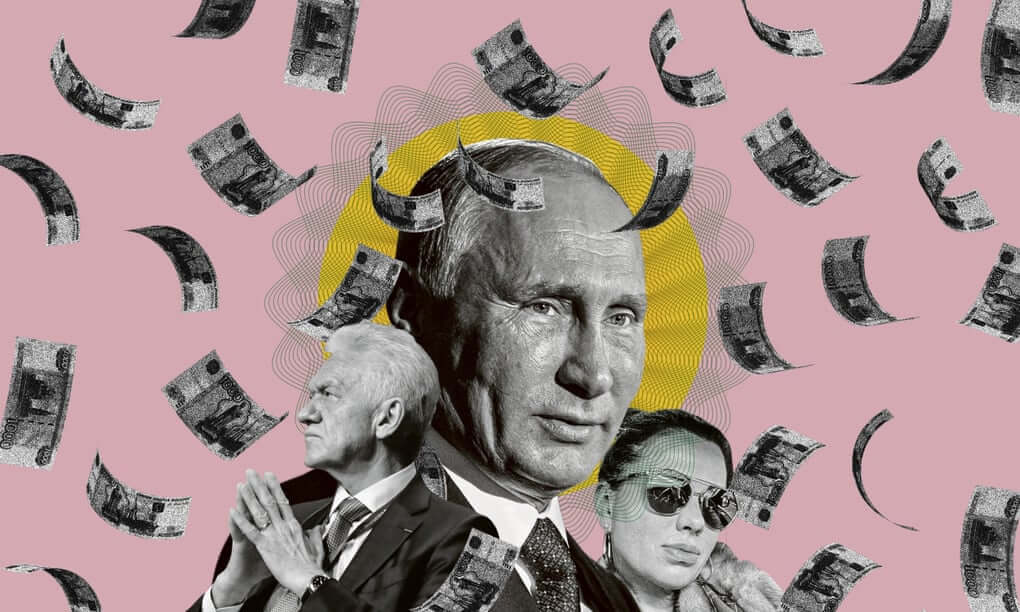The Pandora Papers on Sunday revealed Russian President Vladimir Putin’s close association with several offshore beneficiaries who have amassed hidden wealth.
Although Putin has not been directly named within the Papers, a number of individuals linked to Putin, including his alleged mistress Svetlana Krivonogikh, Sergei Chemezov (the CEO of Russian state defense conglomerate Rostec), Konstantin Ernst (the CEO of Russia’s largest state television channel), and German Gref (the CEO of state-owned lender Sberbank), were named in the report
Immediately after the revelations, on Monday, the Kremlin dismissed the Papers as “a set of largely unsubstantiated claims.” Russian Press Secretary Dmitry Peskov slammed the leaks and said: “We didn’t see anything on hidden wealth within Putin’s inner circle.” He claimed that the information revealed by the Pandora Papers cannot be trusted, adding: “If there are serious publications, that are based on something concrete and refer to something specific, then we [Kremlin] will read them with interest.”
The Pandora Papers is a report released by the International Consortium of Investigative Journalists (ICIJ), formulated by “some 600 journalists from media including The Washington Post, the BBC and The Guardian, is based on a leak of 11.9 million documents from 14 financial services companies around the world.” Standing out to be one of the world’s largest investigative journalistic endeavours, the findings named around 35 heads of states, more than 300 politicians, and countless companies who have “set up offshore structures and trusts in tax havens,” accumulating massive amounts of wealth hidden away from the public.
Among the list of people named in association with Putin, his alleged mistress Svetlana Krivonogikh’s case has garnered maximum media attention. Krivonogikh reportedly owns a $4 million property in Monaco purchased through an offshore company towards the end of 2003. ICIJ Director Gerard Ryle in conversation with CNN's Bianna Golodryga mentioned that Krivonogikh is someone “who came from nothing” and worked as a cleaner prior to her relationship with Putin. In November last year, Russian independent media outlet Proekt also alleged that Krivonogikh is the mother of Putin’s child who is now 18 years of age. The Kremlin banned and qualified Proekt as a “foreign agent” this year. A Guardian article also alleges that Krivonogikh has been concealing Putin’s “shadow wealth” in her Monte Carlo apartment.
Similarly, Ernst, Putin’s close associate and the CEO of Channel One Russia, “made billions of rubles by demolishing Soviet-era cinemas in Moscow and building shopping malls in their place through an offshore company;” he also registered an offshore account in the British Virgin Islands in 2014.
Meanwhile, Rostec CEO Chemezov “hid properties worth 22 billion rubles, including a superyacht and a villa in Spain in offshore firms.” A Moscow Times article reads: “Chemezov, who is under U.S. and EU sanctions, is considered one of Putin’s closest associates and one of the most influential figures at the intersection of Russian business and politics.”
Likewise, Sberbank CEO Gref reportedly “established an offshore company in Singapore which was used to store more than $55 million in family assets.”
A few other associates of Putin were also named in the Papers, such as Roman Putin, a son of the president’s cousin, and Nikolai Yegorov and Victor Khmarin, the president’s university friends.
The ICIJ highlighted that Russian nationals are “disproportionately represented” in the Papers, with “14% of the more than 27,000 named companies having Russian beneficiaries and 46 Russian oligarchs found to use offshore companies.”
Kremlin Rejects Putin’s Involvement in Pandora Papers as ‘Unsubstantiated Claims’
The Pandora Papers revealed Putin’s association with offshore beneficiaries, which the Kremlin dismissed as ‘unsubstantiated claims’ on Monday.
October 5, 2021

Vladimir Putin, his friend Gennady Timchenko (left), and Svetlana Krivonogikh, who it has been claimed was the president’s lover. SOURCE: THE GUARDIAN DESIGN
